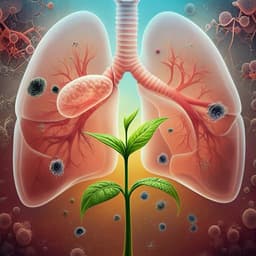
Biology
Effect of simulated microgravity on the antidiabetic properties of wheatgrass (*Triticum aestivum*) in streptozotocin-induced diabetic rats
W. J. Al-awaida, A. S. Sharab, et al.
Discover how simulated microgravity enhances the antidiabetic and antioxidant properties of wheatgrass in diabetic rats, as revealed by researchers Wajdy J. Al-Awaida, Ahmad S. Sharab, Hamzeh J. Al-Ameer, and Nabil Y. Ayoub. This promising study unveils the potential of wheatgrass as a treatment option, showcasing remarkable improvements in key health markers.
Related Publications
Explore these studies to deepen your understanding of the subject.







